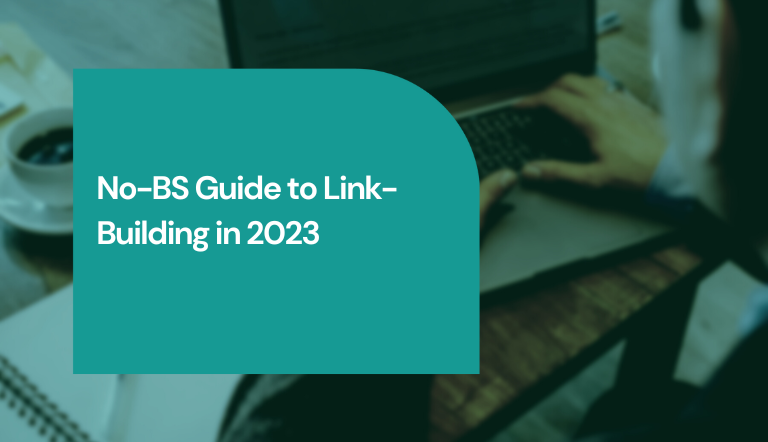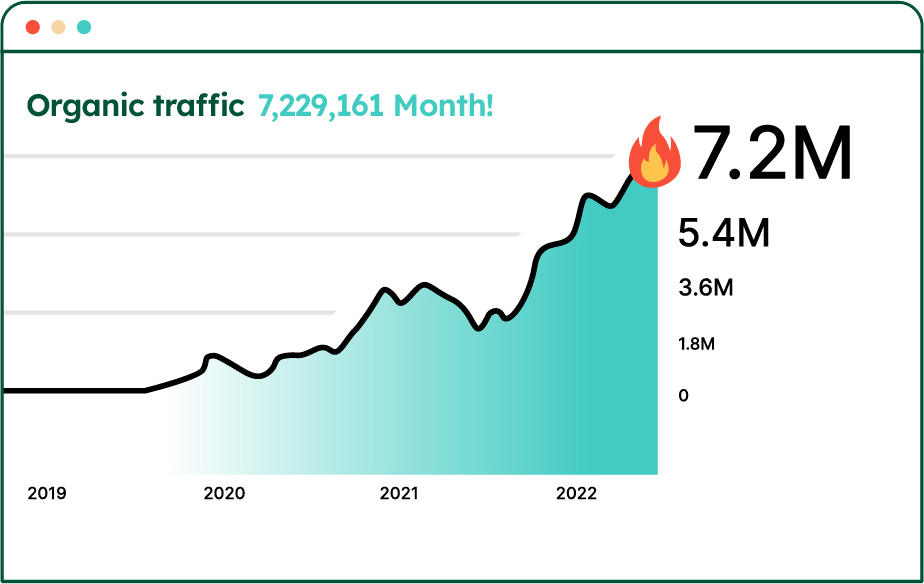Link exchange is a very powerful SEO technique for building backlinks to your website.
Want to learn how to build reciprocal links effectively?
Read on!
Here’s what we’re going to cover:
- What’s a Link Exchange
- Is Link Exchange a Legitimate Link-Building Strategy?
- How to do Link Exchanges Safely (And Avoid Getting Penalized)
- How to Scale Up Link Exchanges with Guest Posting
Let’s dive right in.
What’s a Link Exchange (AKA Reciprocal Linking)?
A link exchange (or backlink exchange) is when two different websites link to each other in order to help boost each other’s Google rankings.
These days, backlinks remain one of the most important factors Google looks at to decide which websites deserve the glory of ranking page #1 on Google (and which ones sit on the sidelines on page #5).
Since both websites have something to gain from a backlink swap, at a glance, link exchange seems like a valid SEO strategy.
Things, however, are not that cut and dry.
Is Link Exchange a Legitimate Link-Building Strategy?
This really depends on who you ask, and the SEO community is generally very divided on the topic.
Some SEOs claim that link exchanges are a dishonest, black hat technique and hence, something that should be avoided completely.
Others believe that, if done right, link exchanges can have a very positive effect on your website’s rankings.
So which one is it?
To get to the bottom of this, let’s first start by covering what Google thinks of the topic.
Is Link Exchange a White Hat SEO Technique?
Technically no, link exchange is not a white hat link-building strategy.
According to Google’s webmaster guidelines, doing link exchange excessively falls under “link schemes,” a practice that’s explicitly discouraged by Google.

That said, “Google thinks they’re bad” is not all there is to this.
First off, Google discourages “excessive” link exchange, not link exchange as a whole. This means that unless your entire link-building strategy is built on exchanges, you should likely be just fine.
Second, Ahrefs actually ran a study on reciprocal links and found that such links are actually extremely common. By studying 140,000 random domains, they found that:
- 73.6% of the websites had reciprocal links.
- 24.7% of the websites studied had an overlap of at least 15% between the sites they link to and the sites that link to them.
- 19.25% of the websites Ahrefs links to also link back to them.
Meaning, while link exchanges are discouraged by Google, it’s very hard to distinguish between a manual link swap and two websites coincidentally linking to each other.
Link exchanges are a great link-building tactic for startups without a huge backlink budget. Check out our guide to startup link-building to find other similar tactics.
Can I Get Penalized for Reciprocal Links?
In theory yes. If done excessively, Google can penalize your link exchanges.
If, for example, 50%+ of all your backlinks are link swaps, Google might be able to pick up on that and realize that you’re doing some shady link-building, which may result in a manual penalty.
On the other hand, if link exchanges are only a small part of your overall link-building efforts, then it’s going to be very difficult for Google to determine whether the exchanges were manually placed or just coincidental.
How to Do Link Exchanges Safely
Here’s the verdict: reciprocal links are OK as long as backlink exchange does not comprise 100% of your link-building efforts.
That said, there are other practices you can implement to make your link exchanges safer.
First off, when swapping links, don’t swap links between two pages. E.g. Page A links to Page B and Page B links to Page A.
That would seem pretty suspicious to Google.
Rather, do the swaps between different pages. For example:
- Page A links to Page B
- Page C links to Page D
This way, it’s not an (extremely) obvious backlink exchange.
Finally, if you want to be 100% safe with link exchanges, try the ABC link exchange.
Instead of directly exchanging links between two different domains:
- Site A links to Site B
- Site B links to Site A
Make a 3-way exchange instead:
- Website A links to Website B
- Website B links to Website C
- Website C links to Website A
This way, none of these three websites have any reciprocal links between them, but everyone involved in the trade gets a free backlink.
If you happen to own more than one website, you can do 3-way link exchanges without even needing a third-party involved.
And in case you’re wondering, no, there’s no limit on how many backlinks you can build per month, as long as they’re quality!
How to Evaluate Link Swaps
When conducting a link exchange with a different website, you want to make sure that the link you’re getting in exchange is quality.
Here are several factors you can evaluate to see whether a link from a site is worthwhile:
- Does their DA match yours? If your website has a DA of 40 and the other site has a DA of 20, then the exchange is not worth it for you.
- Is it a link farm? A link farm is a type of website that’s created with the purpose of selling backlinks. Getting a link from such a website, though, is not worth it, as Google can easily spot that it’s a link farm and devalue backlinks from their domain.
- Does the website drive real traffic? The best way to tell if Google looks at a website favorably is by (drum roll) checking how well the site is ranking on Google.
- Is the website topically related to yours? If you get a backlink to your accounting website from a cooking blog, it won’t do you much good.
- Are they offering a do-follow backlink? No-follow backlinks don’t have as much of an impact on your rankings.
Speaking of no-follow, some popular types of no-follow links that don’t help much with SEO are forum backlinks, web 2.0 links, blog comments, and Fiverr backlinks. So, if you’re serious about SEO, avoid such backlinks!
Scale Up Link Exchanges With Guest Posting
Now let’s talk about effectiveness – how can you do link exchanges in such a way that gets you the most value possible?
The answer here is guest post swapping.
Here’s how this works:
You establish partnerships with other websites that frequently write guest posts on other blogs.
The partnership goes like this – whenever they publish a guest post, they also include a backlink to your website. In exchange, you’ll do the same thing yourself when YOU publish a guest post on some blog.
So, say you get five partners for this. This way, each time you publish one guest post (and link to your partners), you also get five backlinks from your partners publishing their guest posts as a favor back.
The only thing you need to do in order to get started with guest post swapping is:
- Find websites willing to do the swaps with you (preferably in similar niches to yours). You can find such sites on the B2B Bloggers Boost Facebook group.
- Create a Google Sheet to keep track of who owes you backlinks and who you owe backlinks to.
For other great link-building tactics, check out our guide to editorial backlinks, as well our link-building lessons article!
Key Takeaways
And that’s a wrap! Think we covered all the important information you need to know on how to get started with link exchanges as a link-building technique.
Before you go, though, let’s do a quick recap of what we covered in this article:
- Link exchange is a practice of websites swapping backlinks in order to boost each other’s Google rankings.
- Technically, link exchange is against Google’s policies, but there’s no practical way for them to determine whether 2 websites link to each other because of a swap or organically.
- While it’s unlikely, Google can potentially penalize your website if you do link swapping excessively.
- Follow the tips we mentioned in this article to do backlink swapping safely and keep your website from getting penalized.





